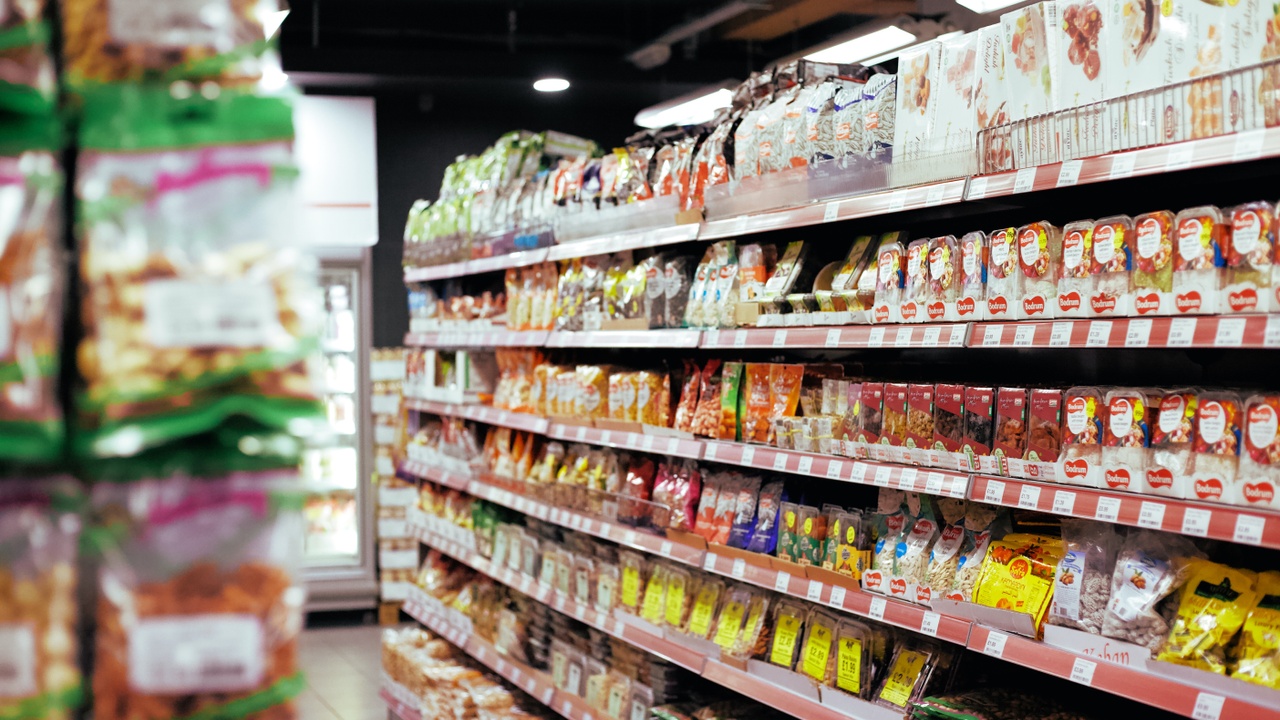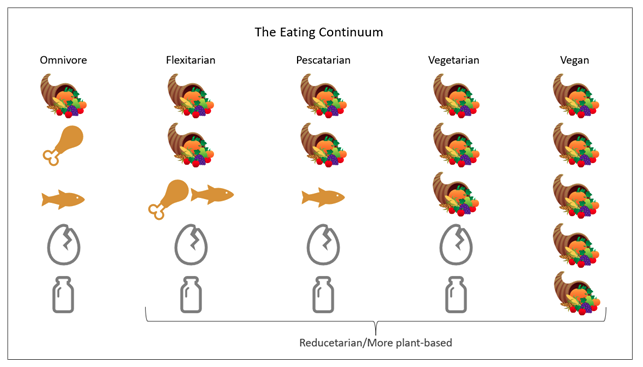
Omnivore, Flexitarian, Pescatarian, Vegetarian, or Vegan: Which One are You?
Where are You on the Eating Continuum?
If you now eat a standard American diet, but you’re thinking about eating less meat, eggs, and dairy, you might be wondering what type of eater that will make you. You might not like to be labeled or put in a box and that’s understandable.
But sometimes knowing a quick, one-word term to tell friends or relatives who invite you over to eat, or restaurant servers taking your order is easier than a long explanation. So, I thought I’d give you a simple guide to the different phases of the eating continuum.

Personally, I’ve traveled along the whole continuum, as I share in the first video of my Plant-Based Eating Made Easy series. I started eating a standard American diet, then moved to mostly plant-based with a little meat or dairy once in a while, to now being fully plant-based. So, wherever you are, I can relate. Let’s look at the different stages of the continuum.
Omnivore
First is the standard American diet, omnivore. This means eating plant-based foods plus meat, eggs, and dairy. In North America it’s the most familiar way of eating, but it’s not always the healthiest.
Flexitarian
With that in mind, a lot of people decide to move to the next phase, flexitarian. This means eating a flexible diet. It’s also known as semi-vegetarian or part-time vegetarian. How often a flexitarian eats plant-based is up to them. It could be anywhere from skipping meat one day a week, like with Meatless Monday, to skipping meat, eggs, and dairy most days except on special occasions.
Pescatarian
A stage that’s a lot like flexitarian is pescatarian. The name is a mixture of the Italian word for fish and the English word vegetarian. It’s usually plant-based, plus fish, shellfish, eggs, and dairy—skipping meat and poultry.
Vegetarian
People who don’t want to eat any kind of meat or fish choose the next phase, vegetarian. Beside omnivore, this is probably the stage that’s the next most familiar to most of us. You might know it means eating plant-based, with no meat, fish, or poultry, but including eggs and dairy. This could be considered mostly plant-based.
Vegan
People who don’t eat any kind of animal or anything that came from an animal are fully plant-based, or vegan. This means as much as possible choosing foods made from plant sources. Once in a while, a vegan might eat something that has a little bit of egg or dairy as an ingredient, like in a muffin. But most of the time their diet is fully, or almost fully, plant-based.
Reducetarian
You can see as we go further on the continuum, the ratio of plant-based foods increases. People move through these stages at different rates and for different reasons. But aside from omnivore, all the other stages have something in common. They’re all ways of being a reducetarian. That means someone committed to eating less meat and dairy and fewer eggs. They’re eating in a way that’s more plant-based than the standard American diet.
Some reducetarians replace meat, eggs, and dairy with whole plant foods in their natural form. Others find it more convenient to eat a plant-based version of the standard American diet. Today that’s easier than ever, since there are tons of realistic meat, egg, and dairy alternative products like Beyond Burger, JUST Egg, Silk almond milk, and so on.
Questions for Reflection
Thinking about this continuum, here are some questions you might like to think about. Where you are now on the continuum? How do you feel about that stage? Which stage would you like to move to next? How quickly would you like to move toward it? Eventually, which stage would you like to get to, say five years from now?
However you answer these questions, I’ve designed my video series to make you feel welcome and to make the next step easy for you. It’s not about a specific phase on the continuum but eating more plant-based. It’s about using simple, realistic, delicious plant-based swaps to boost your health—whatever that means to you and however it’s comfortable for you.
Ready to learn more about plant-based swaps?

